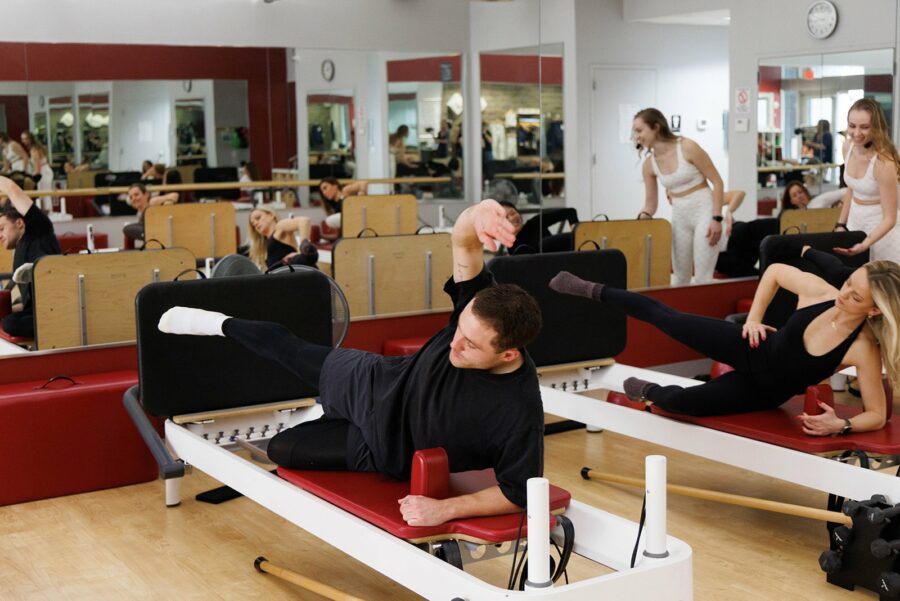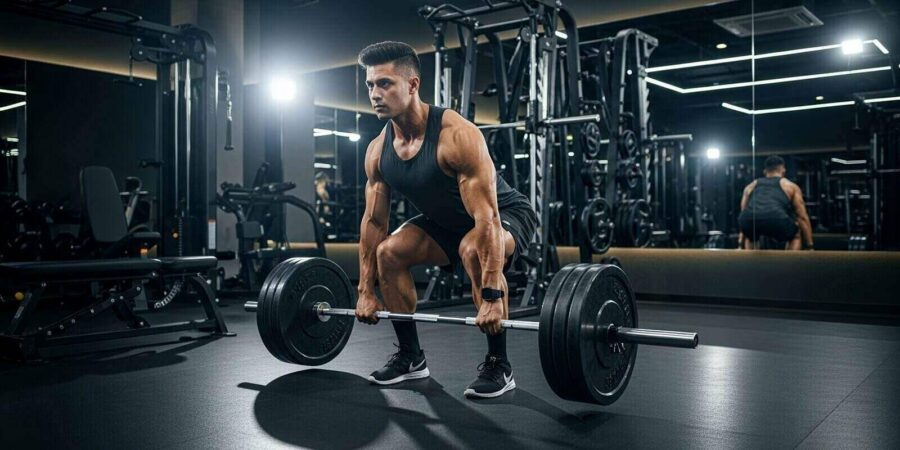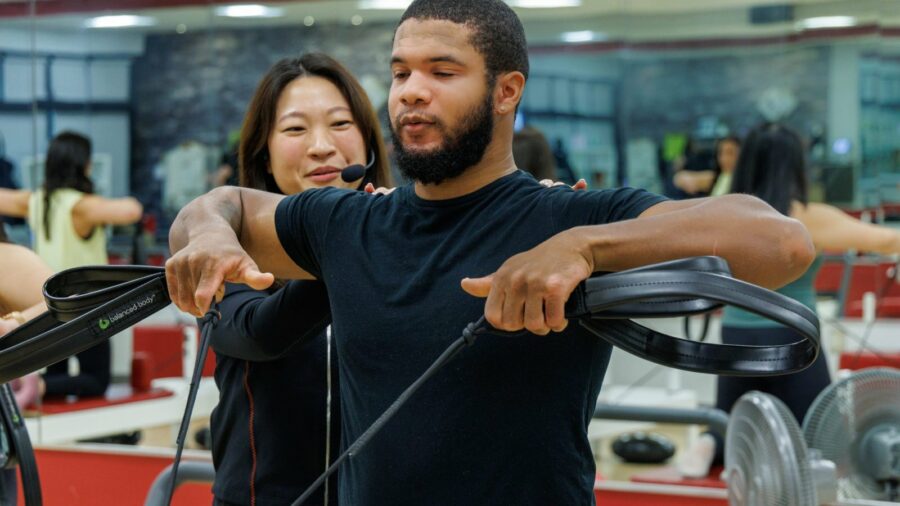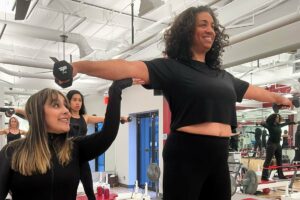 Perimenopause is a significant milestone in a woman’s life. It describes the period during which she begins to experience symptoms leading to menopause, such as irregular periods. This time presents changes, many of which can be uncomfortable or have long-lasting consequences. The good news is that Reformer Pilates classes can help women balance these life changes during perimenopause so they can continue to enjoy life as they envisioned.
Perimenopause is a significant milestone in a woman’s life. It describes the period during which she begins to experience symptoms leading to menopause, such as irregular periods. This time presents changes, many of which can be uncomfortable or have long-lasting consequences. The good news is that Reformer Pilates classes can help women balance these life changes during perimenopause so they can continue to enjoy life as they envisioned.
Every woman is different, which means that her perimenopause symptoms will be individual, too. However, with knowledge of the most common complaints, you can learn what Reformer Pilates does to combat those changes.
The Changes That Perimenopause Can Bring
As a woman’s body reaches the end of its reproductive years, numerous changes will occur. An individual will experience these shifts, but whether or not they experience symptoms varies among individuals. Some changes include:
- Estrogen decrease – The body’s supply of estrogen changes, which can cause tenderness in the breasts, mood swings, and more
- Irregular periods – Contrary to popular belief, periods may not gradually become lighter as they fade away; some women may experience increased bleeding
- Hormonal imbalance – Estrogen is not the only hormone that begins to fluctuate during menopause. Changes in progesterone and many other hormones can lead to hot flashes, night sweats, difficulty sleeping, and irritability.
How Reformer Pilates Eases Perimenopause Symptoms
Reformer Pilates works the muscles, which may not seem directly connected to the body’s systems impacted by perimenopause. However, Pilates is a powerful tool to keep you balanced during this uncertain time.
Stabilizes Mood
 Mood changes result from an imbalance of hormones that had previously reached a comfortable homeostasis. While Pilates cannot restore your body’s supply of estrogen, it helps the body process cortisol, the stress hormone.
Mood changes result from an imbalance of hormones that had previously reached a comfortable homeostasis. While Pilates cannot restore your body’s supply of estrogen, it helps the body process cortisol, the stress hormone.
This can reduce aggression and ease stress, while the exercise generates endorphins, or feel-good chemicals that can improve mood.
Maintains Metabolism
A woman’s metabolism often begins to decline during perimenopause and onward, making it easier to gain weight. As a form of exercise, Pilates is an excellent option for burning calories without exposing the body to high impact, such as with running.
Just because Pilates relies on slow, steady movement does not mean it’s easy! Pilates can be adjusted to your body’s abilities and difficulty needs, so you will always find it challenging in all the right ways.
Supports Rest
Many women suffer from a poor night’s sleep as hot flashes, night sweats, and general restlessness keep them awake. The exertion from a well-rounded exercise routine stimulates the body’s healing mechanisms, making you sleepy so the body can rest and repair.
Additionally, the deep breathing techniques used in many exercises and the focus inward that the hobby prioritizes, are effective tools for decompressing at night. Thanks to lower cortisol levels with regular Pilates, sleep comes much easier!
Combats Joint Deterioration
As women age, they lose bone density, and the joints can become inflexible and painful. Pilates is a powerful preventative for joint pain and deterioration, with studies indicating that it significantly reduces pain in the neck, back, and especially the knees.
This was true even in patients who had more advanced forms of arthritis. By keeping the joints moving and strengthening the muscles that keep them supported and stable, reformer Pilates classes help participants maintain healthy bones and joints over the long term.
Promotes Stability and Safety
One of the most significant risks of getting older is a gradual decline in stability. This is why older people are the demographic most likely to fall, and falls are the leading cause of fatal injuries in older adults.
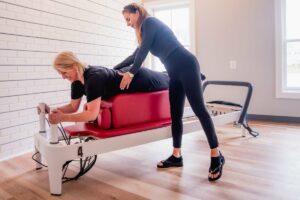 Even if you are steady on your feet, perimenopause presents some level of bone and muscle deterioration that can make it easier to break a bone or suffer other injuries should a person trip.
Even if you are steady on your feet, perimenopause presents some level of bone and muscle deterioration that can make it easier to break a bone or suffer other injuries should a person trip.
Pilates improves stability by strengthening the core, which maintains balance and aligns the spine. A strong core allows a person to maintain stable footing, adjust to sudden changes, and adapt should they lose their balance.
Experience How Reformer Pilates Classes Improve Perimenopause
Perimenopause is a stage of life that few women look forward to, but it does not have to become your life’s defining feature. Pilates can combat many of the unwelcome symptoms that come with perimenopause, so contact RTR Pilates today to sign up for a beginner class! We can show you how Pilates can help you balance your new life changes, even if you have never seen a reformer machine before.

